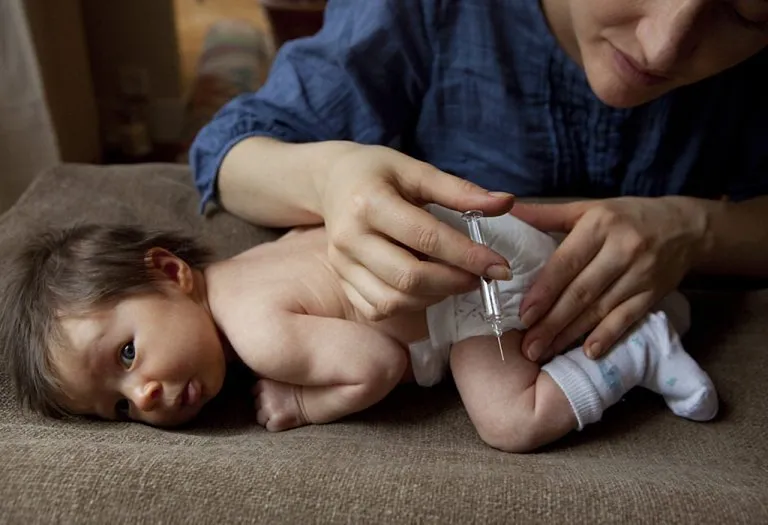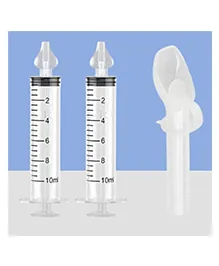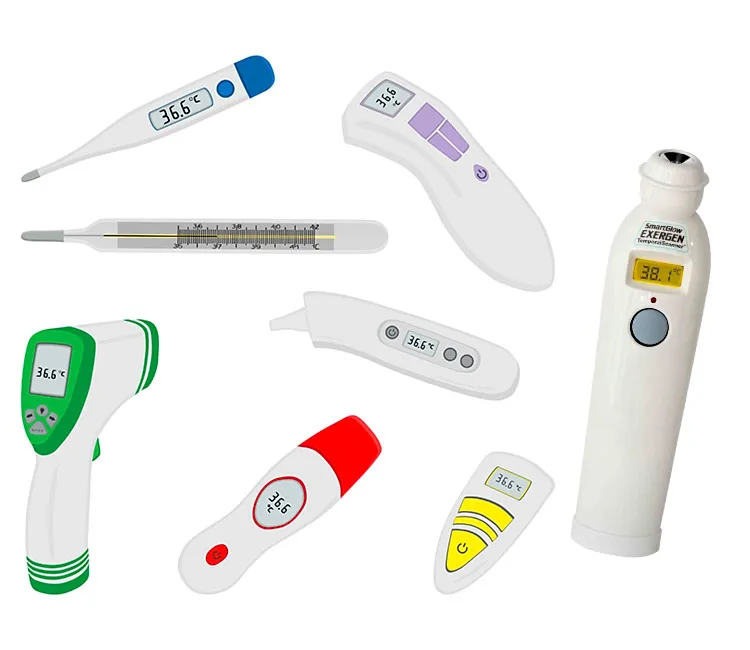Pneumococcal Vaccine for Infants – Schedule, Dosage & Side-effects

- What Is the Pneumococcal Vaccine?
- What Is Pneumococcal Disease?
- How Common It Is in Babies
- Why It Is Essential for a Child to Get This Vaccine
- Who Should Get the Pneumococcal Vaccine
- Who Should Not Get the PCV Vaccine?
- What Are the Recommended Doses and Schedules for the Pneumococcal Vaccine for Babies?
- What Is the Cost of the Pneumococcal Vaccine in India?
- What Are the Types of Pneumococcal Vaccine?
- How Is the Vaccine Given?
- How Well Do PCV Vaccines Work?
- Side Effects of Pneumococcal Vaccine in Babies
- Things to Tell Your Doctor Before Giving the Vaccine
- What to Do If Your Child Has a Reaction to the Vaccine
- What to Do If One Pneumococcal Vaccine Is Missed
- FAQs
Streptococcus bacteria cause serious diseases such as pneumonia and meningitis, which can develop rapidly within just a few days of infection. These bacteria also lead to severe ear infections in children, making prevention crucial. The pneumococcal vaccine is highly effective in fighting multiple strains of these dangerous bacteria. In 2010, the advanced PCV13 vaccine was introduced, offering broader immunity against more bacterial strains than earlier versions. The pneumococcal vaccine for infants is a critical safeguard, protecting them during their most vulnerable years. Let’s take an in-depth look at how these vaccines work, their benefits, and the recommended schedule for when a child should receive the shots to ensure optimal protection.
What Is the Pneumococcal Vaccine?
A pneumococcal vaccine protects children against a harmful infection called the pneumococcal disease (1).
What Is Pneumococcal Disease?
This disease is caused by the Streptococcus pneumoniae bacteria. This bacteria either infect people, or reside in the throat of a person without causing any illness to him. These bacteria can spread through carriers (a person carrying the bacteria but not showing symptoms of illness) via tiny droplets from the mouth or nose during breathing, coughing, or sneezing. This bacteria causes infection in the middle ear, sinus cavities, and the respiratory tract (2). Pneumonia injection for babies is being administered today to avoid these infections.
How Common It Is in Babies
Pneumococcal disease is relatively common in infants and young children, as their immune systems are still developing, making them more vulnerable to infections like pneumonia, meningitis, and bacteremia. According to the CDC, before the widespread use of the pneumococcal conjugate vaccine (PCV13), tens of thousands of children under 5 in the U.S. were affected annually by severe pneumococcal infections, with hundreds dying from complications (3). Even with vaccination programs, pneumococcal bacteria remain a leading cause of serious illness in babies, particularly those under 2 years old
Why It Is Essential for a Child to Get This Vaccine
It is recommended that all kids below the age of two years, as well as adults older than 65 years of age, get the pneumococcal vaccine. Children are susceptible to harmful ear infections when affected by the Streptococcus bacteria. Diseases such as pneumonia and meningitis can develop within the affected host within a few days of being infected. It is thus essential for a child to get this vaccine (4).
The vaccine dosage must be given at the correct times, and should be completed. As even one less dose can pose a risk to your baby’s health, we recommend using our Vaccination Tracker. This tool will tell you exactly when you need to take your baby to the doctor. With the ‘Reminder Set for’ feature, you can prevent your little one from a severe ear infection and other diseases.
Who Should Get the Pneumococcal Vaccine
Children below 5 years and adults above the age of 65 years need to take this vaccine. With age, the immune system does not function as well as it used to, and it becomes increasingly difficult to ward off infections.

People who have a weak immune system need to take this vaccine. The occurrence of many diseases can weaken the immune system, which then has reduced strength to fight against Streptococcus infections. People with heart disease, asthma, emphysema, diabetes, etc. are more susceptible to get these infections, as they have a weakened immune system. Even those who have HIV, AIDS, or have received organ transplants or chemotherapy, have a weak immune system, putting them at risk of being infected easily.
Those who smoke and drink heavily need to take this vaccine. Long-term smokers will have damaged the inner lining of the lungs. This inner lining of small hair is the preventative tool against germs, and will not be effective when damaged. Those who drink heavily will have a weakened immune system. The white blood cells that defend the body against infections will not function as effectively as those of a healthy person.
Those who are recovering from a severe illness or surgery need to take this vaccine. At this stage, the immune system is busy helping them recover, and it cannot be efficient in fighting off any other infections (5).
Who Should Not Get the PCV Vaccine?
It is not required that every single person has the PCV vaccine. An adult who is healthy, and within the age group of 18 to 64 years, can skip this vaccine. People who are allergic to the contents of this vaccine should also not take it. Consult a doctor for the same.
What Are the Recommended Doses and Schedules for the Pneumococcal Vaccine for Babies?
This vaccine is recommended to be administered in series for young children and infants. The series consists of three doses, each taken at the ages of six weeks, ten weeks, fourteen weeks, and booster between 12 to 15 months. Even if babies have missed any of these shots, it is imperative to administer the vaccine to them. It is advised to consult with a doctor to confirm the dosage interval and number.
What Is the Cost of the Pneumococcal Vaccine in India?
The Pneumococcal vaccine price in India is around ₹ 1495 – ₹ 3801.
What Are the Types of Pneumococcal Vaccine?
There are two different types of pneumococcal vaccines, which are administered depending on the person’s age and health (6).
Pneumococcal Conjugate Vaccine (PCV)
The pneumococcal conjugate vaccine for infants, or PCV, is administered to babies under the age of two years. The PCV13 vaccine for infants protects them against 13 types of harmful bacteria that are responsible for causing pneumonia.
Pneumococcal Polysaccharide Vaccine (PPV)
This vaccine is administered to adults who are 65 years and above. It is also given to those who are at high risk as a result of long-term sickness or health problems. The PPSV23 vaccine protects adults against 23 types of harmful bacteria that are responsible for causing pneumonia.
Children above the age of two years can be administered the PPV vaccine if they are susceptible to the infection. It is rare that the vaccine does not work on the babies. PCV1 vaccine for infants does not work against all the types of pneumonia-causing bacteria, but they ward off 30 or more severe and common types.
How Is the Vaccine Given?
PPV is administered subcutaneously or intramuscularly, and the PCV is given intramuscularly. The site of injection for babies and young children is in the anterolateral thigh region, specifically in the vastus lateralis muscle. The site of injection for adults is the deltoid muscle in the shoulder region. The needle length is chosen depending on the age of the person who is receiving the shot (7).

How Well Do PCV Vaccines Work?
The PCV vaccine is said to be 50-70% efficient in preventing the pneumococcal infection.
Side Effects of Pneumococcal Vaccine in Babies
As is the case with almost all vaccines, the pneumococcal vaccine also causes mild side effects. These include:
- Lowered appetite and tiredness
- A mild fever
- Redness or swelling at the site where the shot was administered
Other than minor allergic reactions, no major side effects occur upon taking this vaccine.
Things to Tell Your Doctor Before Giving the Vaccine
If any of the following conditions have occurred, inform your doctor before the vaccine is administered to your baby:
- If your baby has been sick, or has experienced high fever
- Previous allergic reactions to a medicine or vaccine
- If your baby has haemophilia, or bleeds more than normal
- If it has been pointed out that your child has a weak immune system
What to Do If Your Child Has a Reaction to the Vaccine
Call your doctor, or take your child to the hospital immediately. Inform the doctor regarding the details of the vaccination and the allergic reaction. Look for any adverse reactions for a few hours after the administration of the vaccine. Extreme allergic reactions tend to occur within minutes to a few hours after being vaccinated. You can check for weakness, fast heartbeat, dizziness, difficulty in breathing, wheezing or hoarseness, hives, and swelling of the throat.
What to Do If One Pneumococcal Vaccine Is Missed
In cases when a pneumococcal vaccine dose has been missed either by an adult or a child, consult with the doctor, and find out when the course can be completed. If the kid is below one year of age, and he has missed a shot, he can catch up by taking the remaining number of doses, with a gap of two months between each shot. If the child is between one to two years of age, and has missed one shot, he can receive a single shot of the vaccine. If the child is between two to five years of age, and has missed one shot, he might also require a single shot of the vaccine. This specific shot is recommended only if the child is highly susceptible to the pneumococcal infection (8).
FAQs
1. Can the pneumococcal vaccine cause my baby to develop antibiotic-resistant infections?
No, the pneumococcal vaccine does not contribute to antibiotic resistance. The vaccine (PCV13) works by training the immune system to recognize and fight pneumococcal bacteria before they cause infection, reducing the need for antibiotics. In fact, widespread vaccination has helped decrease antibiotic-resistant pneumococcal strains by lowering overall infections.
2. Does breastfeeding provide enough protection against pneumococcal disease, making the vaccine unnecessary?
Breastfeeding boosts immunity but does not fully protect against pneumococcal disease. While antibodies in breast milk help guard against infections like diarrhea and respiratory illnesses, they don’t provide targeted or long-lasting defense against all pneumococcal strains. The vaccine ensures specific, robust protection during infancy, when babies are most vulnerable.
3. Are there any long-term side effects of the pneumococcal vaccine that might appear years later?
No evidence suggests long-term side effects from the pneumococcal vaccine. Like all vaccines, PCV13 is rigorously tested for safety. Common short-term reactions (e.g., mild fever or soreness at the injection site) resolve quickly. Decades of monitoring show no link to chronic conditions or delayed health issues.
4. How does the pneumococcal vaccine interact with other live vaccines given to infants, like rotavirus?
The pneumococcal vaccine (PCV13) is inactivated (contains no live bacteria), so it can be safely given alongside live vaccines (e.g., rotavirus or MMR). Studies show no interference in effectiveness or increased side effects when administered together, as recommended by the CDC’s immunization schedule.
Pneumococcal infections used to cause, every year, about 13,000 blood infections, greater than 700 meningitis cases, and nearly 5 million cases of ear infections in kids younger than five years of age, according to the U.S Center for Disease Control (CDC) and before the times of the pneumococcal vaccination. Today, this vaccine is highly effective in preventing diseases in more than 90% of the population who are susceptible to it. Thus, vaccinating your child with the pneumococcal vaccine is imperative.
Disclaimer: Vaccination prices referenced here vary with location. Please consult your paediatrician or registered medical store before making any purchase.
References/Resources:
1. CDC – Pneumococcal Vaccination
2. CDC – About Pneumococcal Disease
3. CDC – Chapter 17: Pneumococcal Disease
5. CDC – Pneumococcal Vaccine Recommendations
6. American Thoracic Society – Pneumococcal Vaccines
7. CDC – Administering Pneumococcal Vaccines
Also Read:
Pain After Vaccination in Babies
Meningococcal Vaccination
Vaccinations for Newborn Baby
Flu Vaccine for Babies and Children
Was This Article Helpful?
Parenting is a huge responsibility, for you as a caregiver, but also for us as a parenting content platform. We understand that and take our responsibility of creating credible content seriously. FirstCry Parenting articles are written and published only after extensive research using factually sound references to deliver quality content that is accurate, validated by experts, and completely reliable. To understand how we go about creating content that is credible, read our editorial policy here.




















.svg)


















